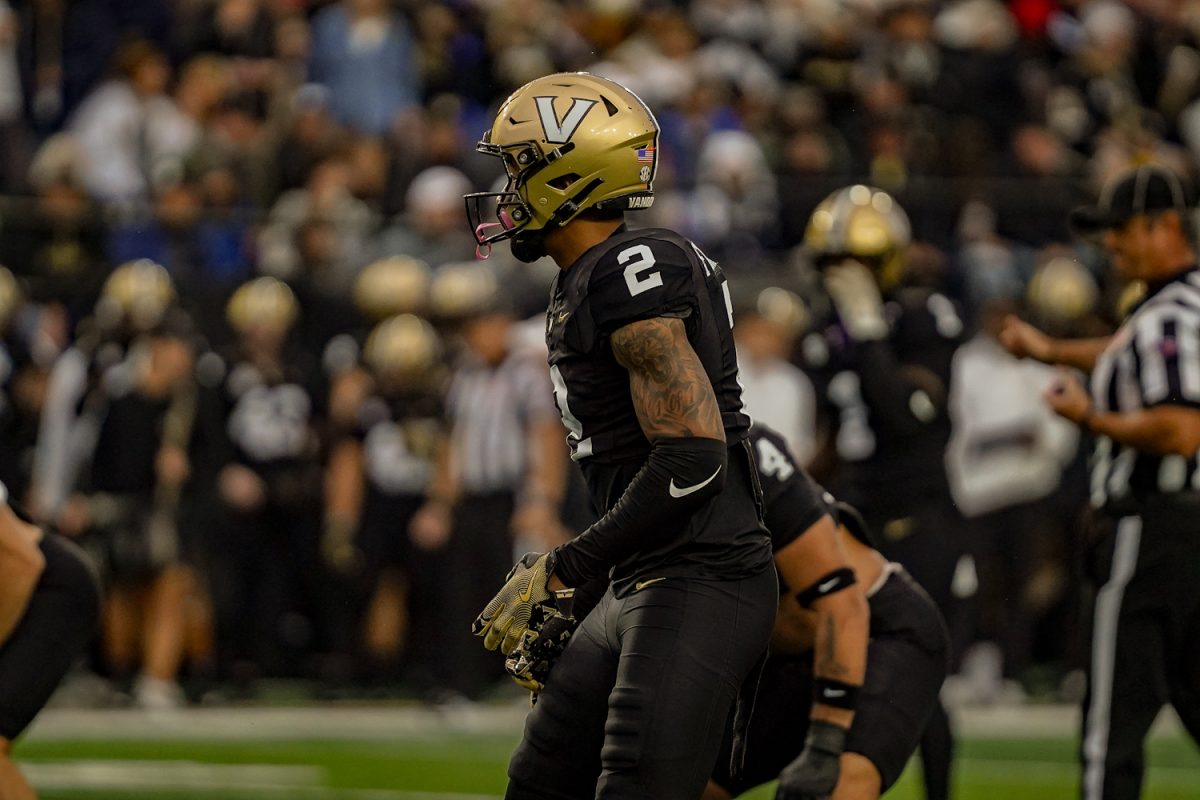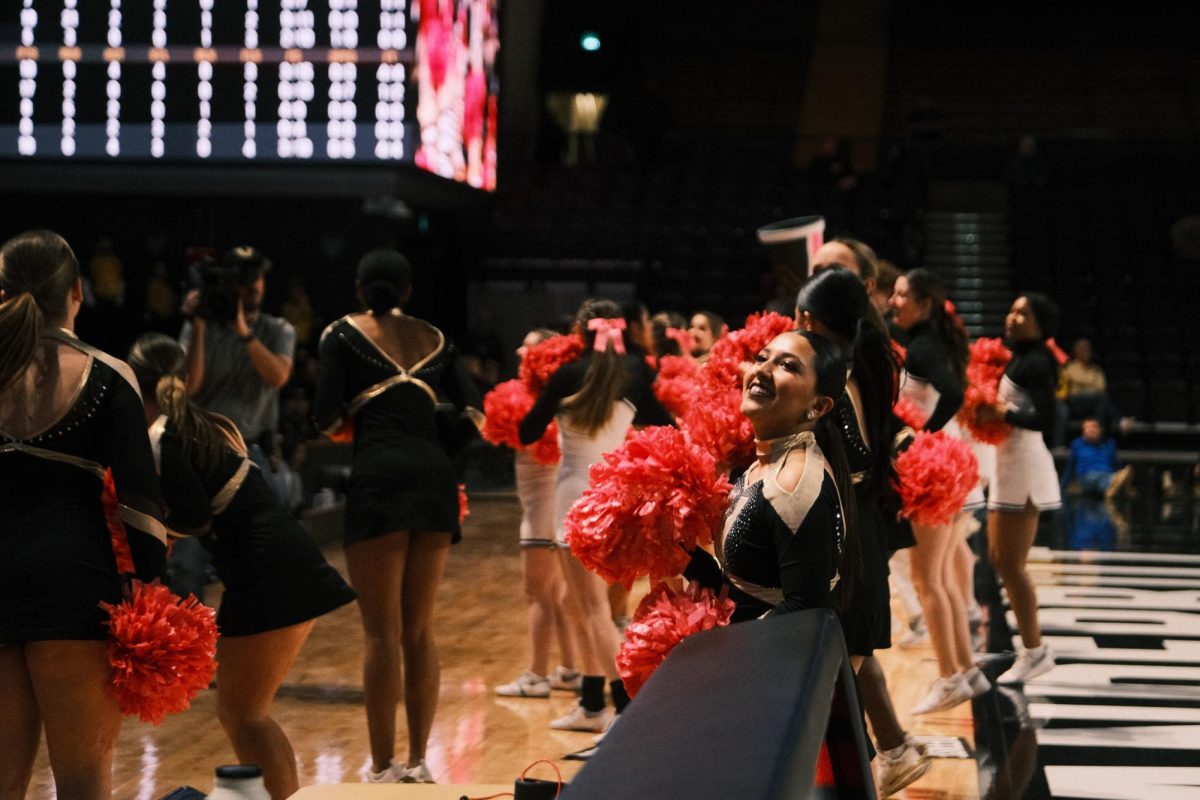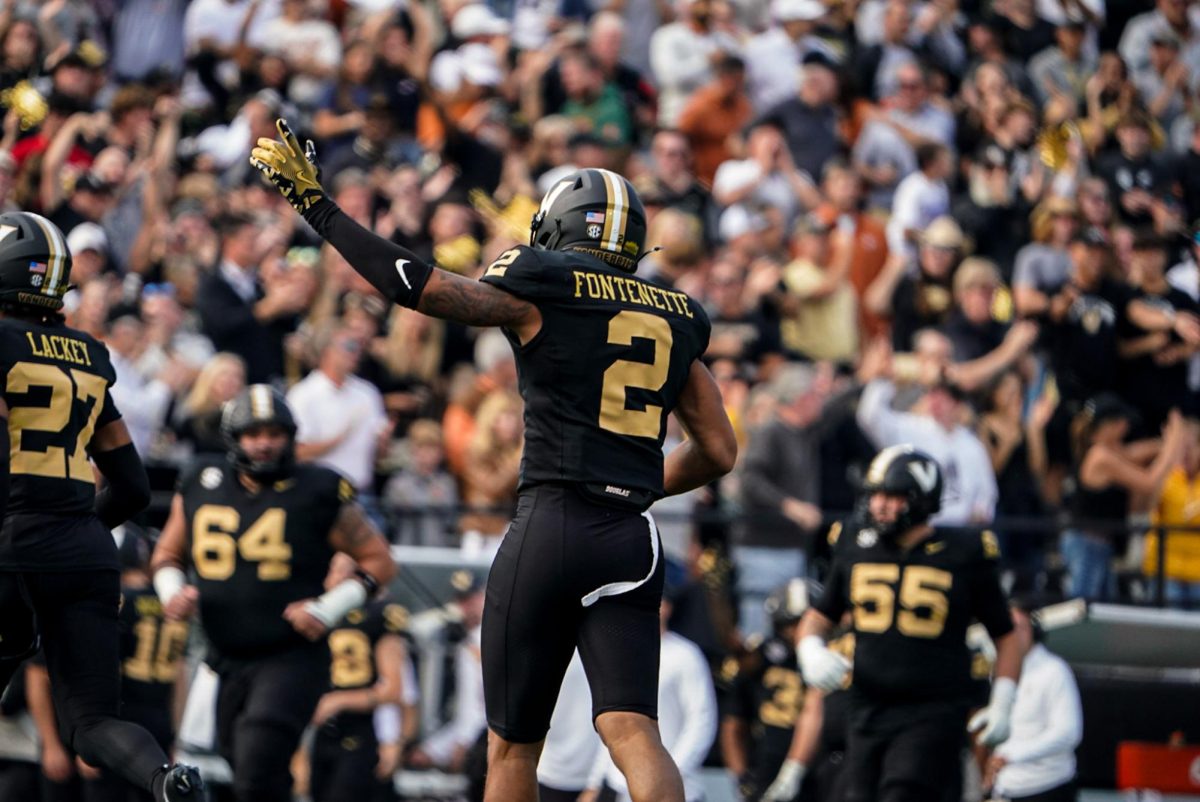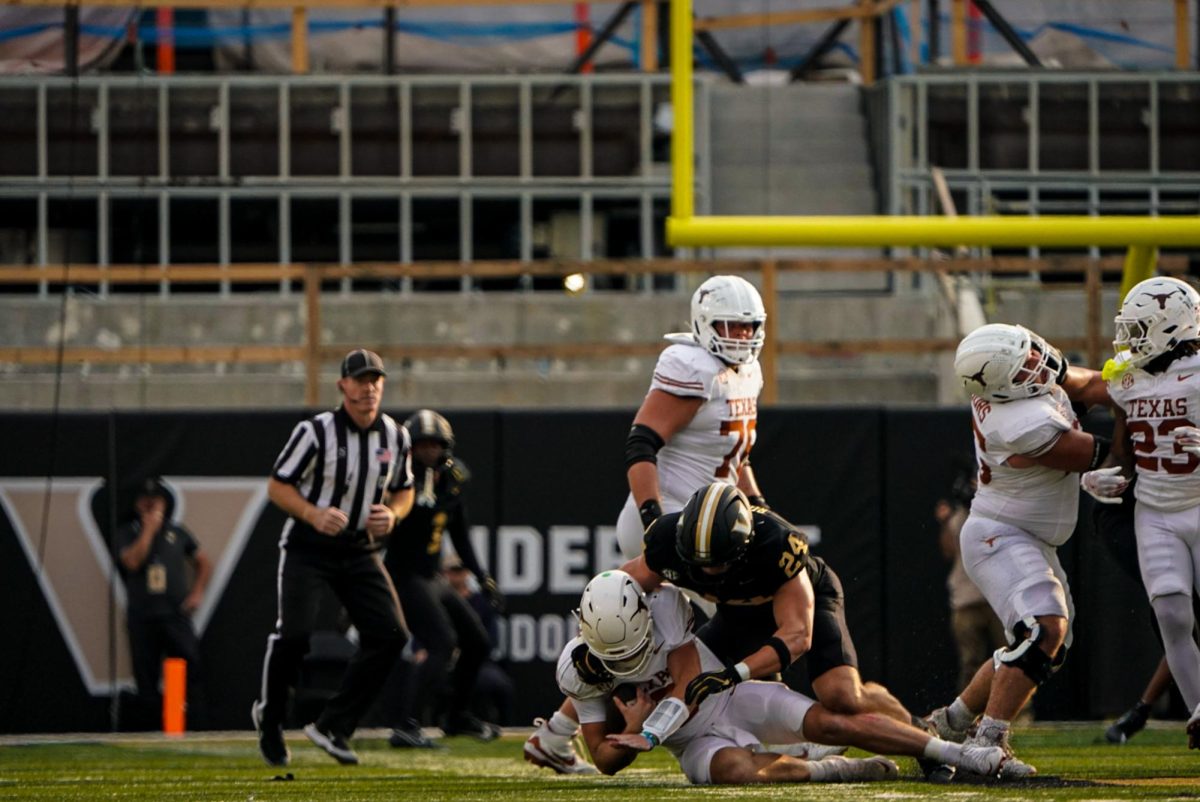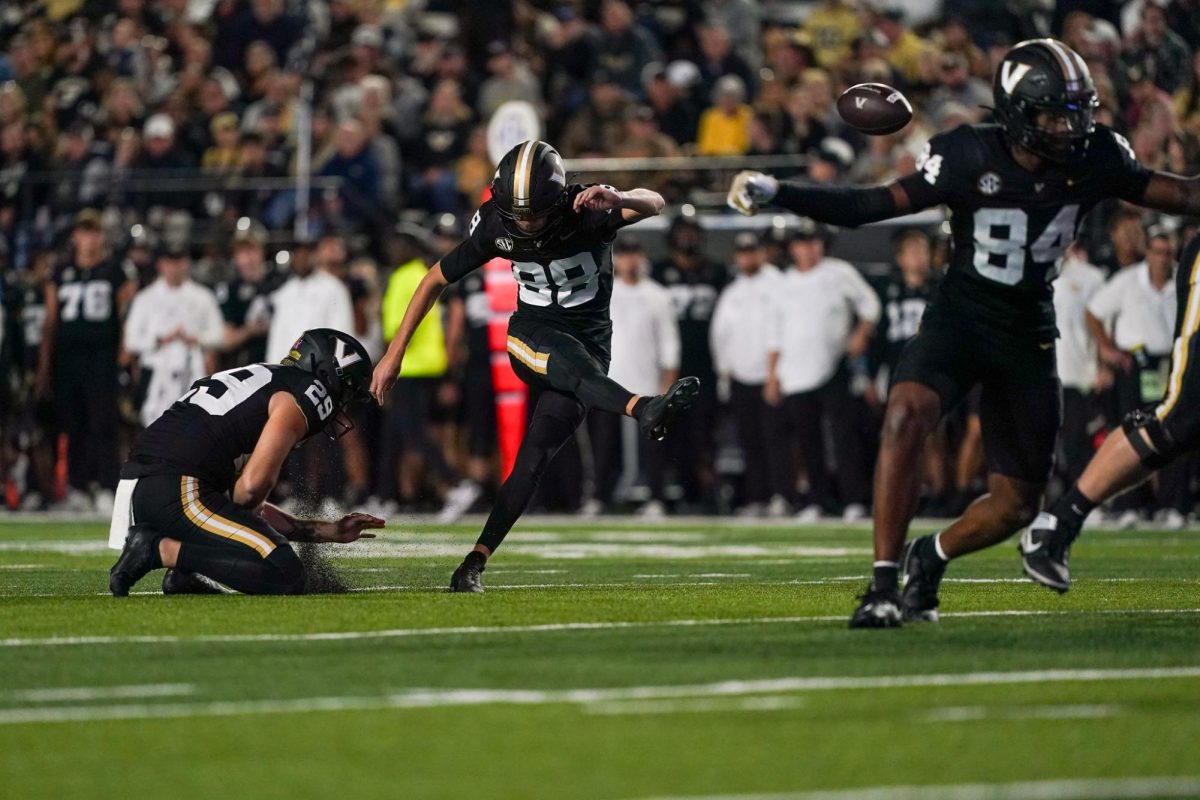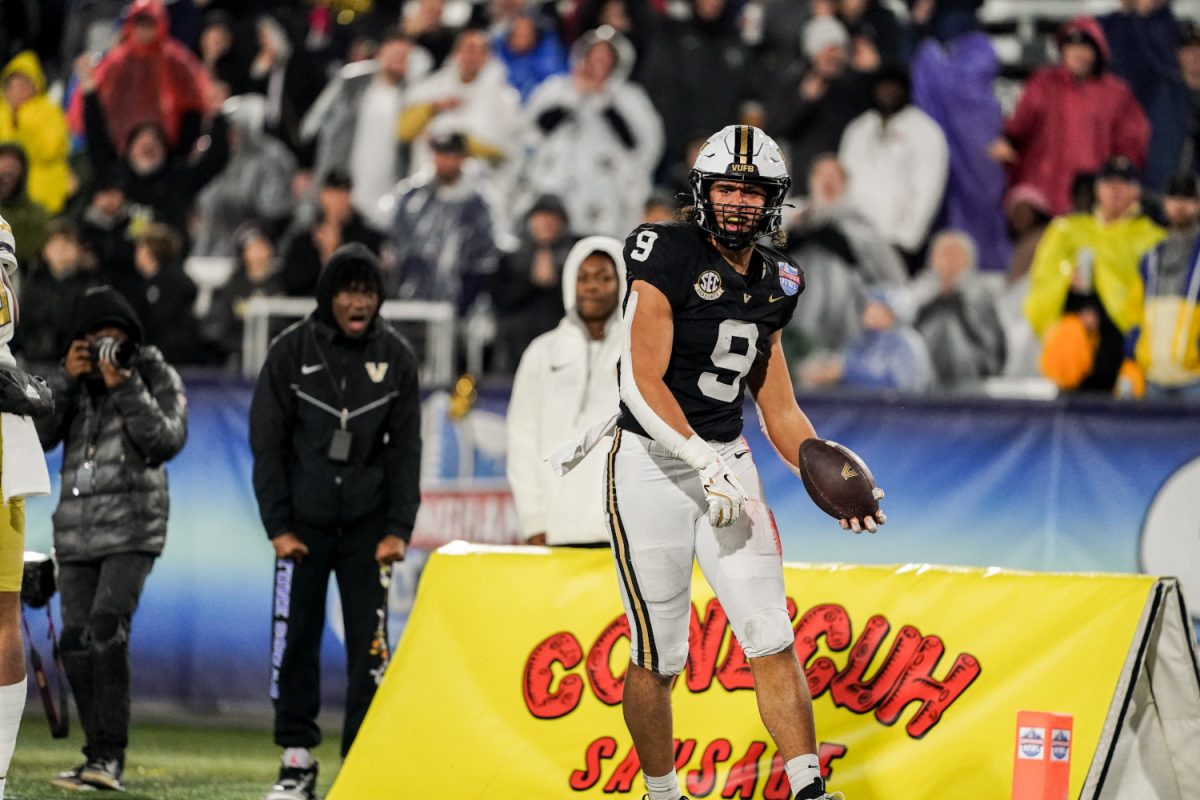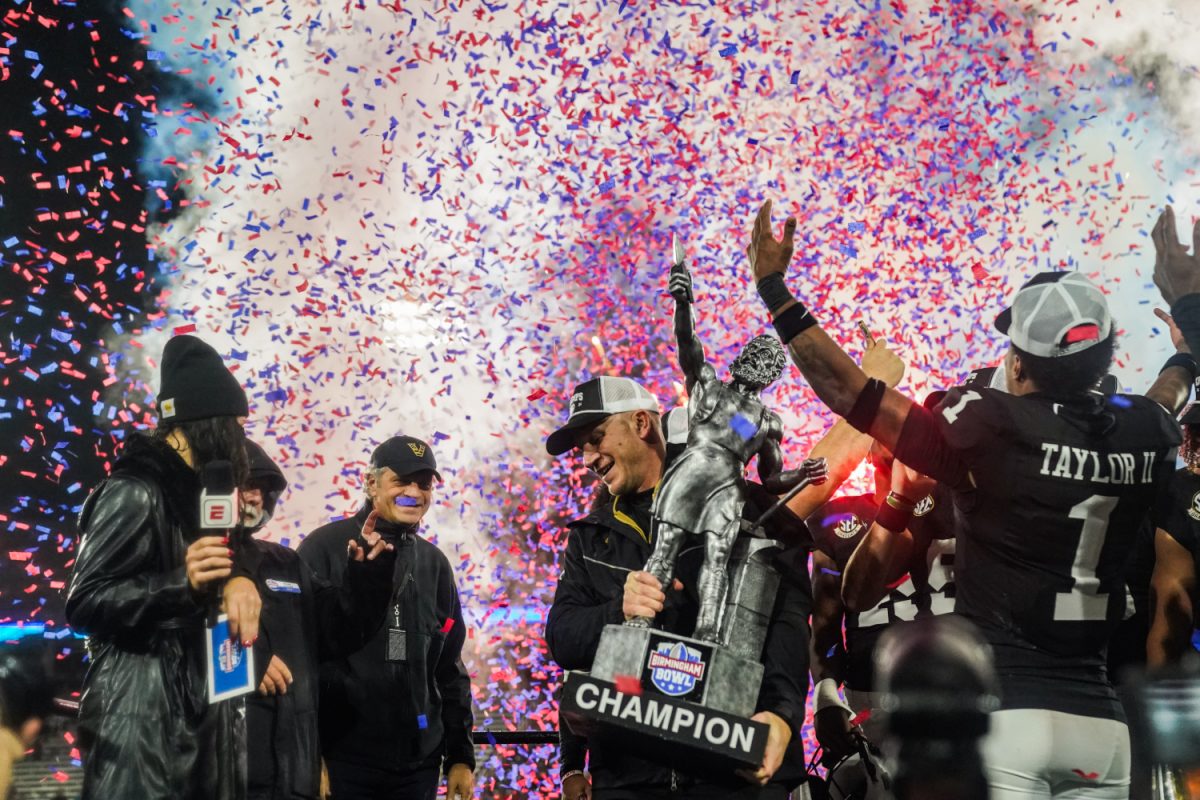Coming off of a bye week, Vanderbilt Football is facing a faltering LSU team who, coming off three straight losses, has been knocked out of the Top 25 of the AP Poll.
The Commodores, following a disappointing 28-7 home loss to South Carolina, dropped from their No. 24 spot in the AP Top 25 heading into their second bye week. Diego Pavia and Vanderbilt’s banged-up offense struggled to sustain drives against a tough Gamecock defense. The Gamecocks’ physicality was too much for Vanderbilt to handle on both sides of the ball as it only managed to sustain one scoring drive while being outgained by 178 yards.
This loss was a significant step back for the Commodores — far from their typical 28 points per game average — and their 0-for-2 conversion rate on fourth downs didn’t help. Their defensive front was pushed around all evening, giving up 214 rushing yards compared to their season average of 122 per game. Vanderbilt’s defense also allowed South Carolina to convert 9-of-12 of its third-down attempts.
Looking forward to this weekend, LSU boasts an elite offense. The Tigers are capable of beating top-end teams and wins against South Carolina and then-ranked No. 9 Ole Miss prove that this will be a challenging contest for the Commodores. How can Vanderbilt bounce back on the road? Here are some important matchups to look ahead to.
LSU’s air attack vs. Vanderbilt’s secondary
LSU’s strength is its passing attack, led by quarterback Garrett Nussmeier, who is ranked seventh in FBS in both total (3,126) and per-game passing yards (312.6). Nussmeier can sling it against good teams; he threw for 337 yards in a win against Ole Miss and another 405 in the Tigers’ loss against Texas A&M. The Tigers’ deep threats are wide receivers Kyren Lacy and Aaron Anderson, who each boast over 15 yards per catch and have combined for 1,453 yards and 12 touchdowns on the year. LSU’s offense is pass-heavy, and it has attempted the fourth most throws in FBS, so Vanderbilt’s secondary should be ready for a long day of work.
Pass coverage is not one of Vanderbilt’s strengths, as it’s allowed over 200 passing yards a game, but it has also been able to force turnovers in important moments. Randon Fontenette’s pick-six against Alabama was one of the most important moments of the season for the Commodores, and he leads the team in pass deflections with six. The more he can get the ball up into the air, the more Vanderbilt will force turnovers.
Vanderbilt’s success on Nov. 23 depends on whether its secondary can prevent big passing plays. The Commodores have struggled with this throughout the season, giving up a 58-yard touchdown pass against Alabama, a 43-yard touchdown pass against South Carolina and a 25-yard game-winning touchdown against Georgia State. The Commodores should know what to expect coming into this matchup and must force key turnovers against a quarterback who has thrown 11 interceptions, which puts him amongst the most turnover-prone players in FBS.
Diego Pavia and the ground game vs. LSU’s defense
Following a down game against South Carolina with only 103 rushing yards, Vanderbilt will look to its identity against a weak LSU run defense. Pavia boasts similar rushing statistics to Alabama quarterback Jalen Milroe, who recently gashed LSU’s defense for 185 rushing yards and 4 rushing touchdowns. Vanderbilt will need to do the same, utilizing Pavia’s mobility to open up the passing game and make LSU pay if it doesn’t respect his legs. Vanderbilt will also need to get running back Sedrick Alexander involved, especially in the red zone. The sophomore has totaled five touchdowns on the season and should be in for a good game if LSU can’t make the proper defensive adjustments.
Linebacker Whit Weeks headlines LSU’s defense with 92 total tackles, and he’s backed up by linebacker Greg Penn III (70 total tackles). The pair has a combined 3 forced fumbles and 11 tackles for losses.
On the whole, the Tigers’ defense has been solid against the passing game in their three losses, allowing 134, 109 and 226 passing yards, respectively. They’ve also allowed a combined 666 yards and 13 touchdowns on the ground. Head coach Brian Kelly and defensive coordinator Blake Baker will need to enact a perfect game plan to neutralize Pavia and Vanderbilt’s rushing attack.
Clark Lea’s road struggles vs. night games in Death Valley
Head coach Clark Lea is in his fourth year at the helm of Vanderbilt Football. and is looking to finish the season strong with a winning record on the road, but this game stands in his way. Winning on the road hasn’t been the Commodores’ strong suit under Lea — he boasts a record of 6-15 — but he has had plenty of time to prepare the team for the test ahead during the bye week. The ‘Dores are about to face one of the loudest environments in all of college football in a primetime showing thanks to a 6:45 p.m. CST kickoff time. This will be the ultimate test of Lea’s coaching ability: Can he keep his players on track and focused through all the distractions?
Death Valley during primetime: it doesn’t get much better than that, at least not in the college football world, and Vanderbilt will be pushed to its limit on Saturday. Tiger Stadium has a 102,321-person capacity and has produced the loudest decibel level at a college football game ever, reaching over 130 in a 2007 top-10 matchup against Florida. Death Valley was ranked as the No. 1 hardest place to play by the Athletic, as the LSU faithful always pack the stadium. With an average attendance of 100,742 in 2023, this harsh environment will put pressure on Vanderbilt’s offense and its communication with offensive coordinator Tim Beck. The Commodores will have to silence the crowd with their performance if they want to take away one of the biggest home-field advantages in college football.
Vanderbilt will travel to the Bayou and take on LSU on Nov. 23 at 6:45 p.m. CST in Tiger Stadium.

